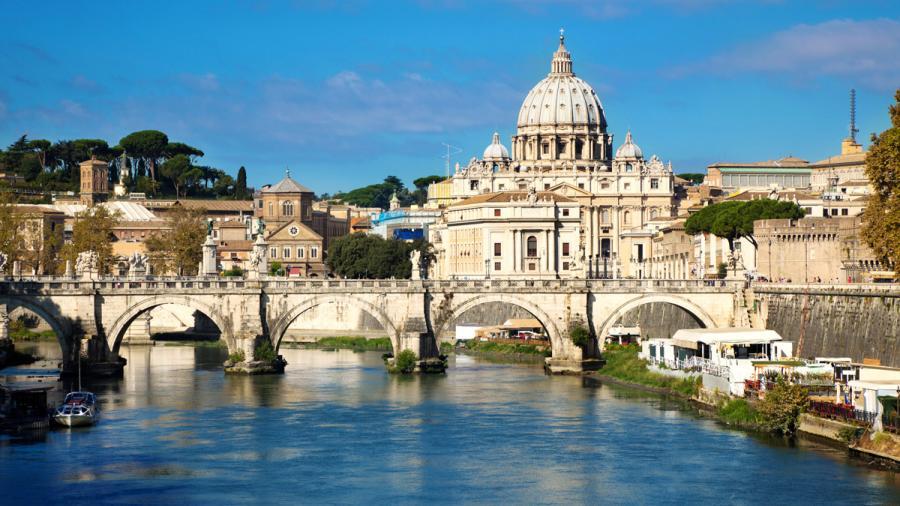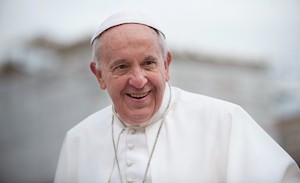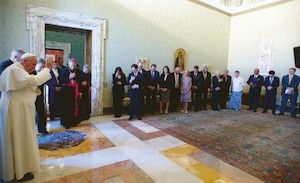Westmont Magazine Staying Faithful to the Westmont Tradition Throughout the World

By Gayle D. Beebe, Ph.D., President of Westmont College
During college, I awakened intellectually and spiritually to the realities of a global church and the great expansions and contractions of Christianity around the world. Amidst the usual praises and condemnations, I recognized the enduring presence and interface of Christianity and culture. At this time, I first discovered the works of H. Richard Niebuhr (Christ and Culture), Ernst Troeltsch (The Social Teaching of the Christian Churches), Max Weber (The Protestant Ethic and the Spirit of Capitalism) and others who were devising frameworks so we could understand these interactions. In later years, I became attentive to the voices of Christians creating contextual theology so we could grasp the role and importance of each unique community and culture in shaping our approach to Christianity and our understanding of the world.
Today I’m alert to the micro-communities and cultures that make up every society while being increasingly detached from the conventional categories that once helped make sense of the world. These changes include our use of con-ventional understandings of the historic divisions between Protestants, Catholics and Orthodox believers. The labels still fit but much more loosely. Over the centuries, the wars and rumors of wars have weighed on each of these communities as parsing belief systems, torturing adherents of other Christian traditions, and destroying whole groups of people tragically occurred as Christianity developed and spread around the world.
Last spring, I traveled to Turkey with Provost Mark Sargent to visit our Westmont in Istanbul semester. One of the high-lights was spending Sunday morning at a Syrian Orthodox Church on the European side of this great city. Here, in words and drama ancient and remote, we witnessed the re-enactment of the entire story of Scripture. Afterwards, we were invited downstairs to share a meal with this community of Christians living out their faith at a difficult time in a very different place. Although we were unable to appreciate all aspects of their generous hospitality, we experienced a common joy in finding followers of Christ in a foreign land.
I kept all this in mind in June as I traveled to Rome, the epicenter of so many religious conflicts and drama throughout the years. In the centuries after Christ, the five historic bishoprics that shared authority in matters of faith and practice eventually gave way to the rise of Rome. The historic division of 1054 split the eastern and western churches, and the Orthodox Church found a new Rome first in Constantinople and eventually in Moscow. Martin Luther’s reaction to abuses in the Catholic Church led to the Reformation and subsequently to the Counter-Reformation. The history of Christianity includes the rise of the Anabaptists, missionary movements throughout the world and much more. The resulting tensions and conflicts have left deep-seated differences and latent hostility among the various Christian traditions.
The invitation I received from the pope acknowledged these conflicts as the basis for the trip. “Can we find common ground to advance the life and ministry of Jesus?” he asked. He wanted to meet with a dozen or so non-Catholic Christians fully recognizing our differences but seeking some way to work together. I represented evangelical higher education in the group. The pope asked such a different question from the one Tertullian raised centuries earlier when he asked if Jerusalem should have anything to do with Athens and quickly answered, “No.”
 I went to Rome expecting to learn much and change little. Yet in these five remarkable days, I witnessed the spirit of God moving to confront the great challenges facing the world. My experience raised questions for us to ponder.
I went to Rome expecting to learn much and change little. Yet in these five remarkable days, I witnessed the spirit of God moving to confront the great challenges facing the world. My experience raised questions for us to ponder.
Before leaving, I sat down with five Westmont professors to discuss the pope’s request and consider how we could best respond as evangelical Protestants. You can listen to this entire conversation on the Westmont website.
Pope Francis is setting a new tone worldwide, so I wondered if it’s possible for us to set aside some of the historic clashes that have occurred between Catholics and Protestants to advance the ministry of Jesus. Friedrich Schleiermacher once said that the chief difference between Protestants and Catholics is that Protestants believe their relationship to the church is mediated by their relationship to Jesus Christ, whereas Roman Catholics believe their relationship to Jesus Christ is mediated by their relationship to the church. This represents a fundamental difference between our two traditions.
The pope seeks to move us beyond these historic tensions. I asked our professors, “Can we overlook the historic schism that separates Catholic, Protestant and Orthodox believers and find common ground again to advance the greater ministry of Christ?”
“In my work, in the field of religious studies, interacting with academics across the spectrum, it’s pretty clear to me that we do have a lot in common,” said Bruce Fisk, professor of New Testament. “In fact, there’s so much more in common between believing Catholic scholars and believing Protestant scholars than there is between, say, believing and more skeptical Protestants.”
Psychology professor Carmel Saad talked about her own experience in answering my question. “My family was raised Coptic Orthodox,” she said. “I chose to come to a Protestant evangelical place like Westmont because I believe in the underlying message. In fact, I believe the similarities are much stronger than the differences.”
Charles Farhadian, our expert in missions and world religions, said, “I think the current pope is offering a lot of encouragement to the world because he’s breaking down barriers, and he wants the church to demonstrate in really tangible ways Christ’s mercy.”
It seems to me that Francis wants to bring healing to all parts of the world in spite of the intractable disagreements and wars that have divided us. I appreciate his emphasis on mercy.
“I like the way Francis has phrased the question, ‘Can we find common ground?’” said Telford Work, professor of theology. “He knows if we can’t find common ground on Jesus, we’re all not Christians! That has to be a rhetorical question. Jesus is our common ground. He’s the root of the faith that we all share despite our differences.”
Professor Farhadian noted that all the doctrinal conflicts or tensions—such as views of the mass versus communion—are based in an understanding of who Jesus is. “Why not get back to that profound story that has profoundly changed humanity itself and all of history itself?” he asked. Why not work with Christians from other traditions to promote the life and ministry of Jesus?
“Christology, or who Jesus is and what Jesus has done, is at the root of most of our divisions,” Professor Work said. “I have my notions of justice, and you have your notions, and Jesus’ notion of peace is going to prevail. Jesus’ notion of justice is going to have to transform ours, or we’ll never find common ground.”
In the discussion with the professors, I thought it important to point out that we weren’t going to try to settle all the theological disputes during our few days in Rome meeting with the pope and Vatican officials. Instead, we focused on how we could help people who need Christ come to Christ and find in him the joy and hope of their lives.
What would it look like for us to join with people of other traditions, including Roman Catholics, I wondered. “There are all these things that we can do together because we’re not prohibited,” Professor Work said. “We can pray together. Catholics and Protestants and Orthodox and Coptics and seekers—people who are on the way who wouldn’t identify as Christians—we can pray together. We can study together. We can in some ways extend the life and ministry of Jesus together even when we haven’t settled the question of who’s in and who’s out and why. And in a way, I think renewal begins with that enrichment before the more formal signs mean as much as they ought to.”
Locally, we’ve seen an example of churches working together to serve the community. “I go to Montecito Covenant Church, and in Montecito there are three other churches: a Roman Catholic, a Presbyterian, and an Episcopal,” said Professor Fisk. “That’s it. A number of years ago, the leaders of those four churches began to meet. As the pastor of my church put it, they discovered that they kind of liked each other, and they actually enjoyed in some ways being together more than just with their own denominational colleagues. So this event or movement, called M4, the Montecito Four, has come out of that, led by clergy who have met, become friends, engaged one another in conversation, and done all those things together that you’re speaking of. As a result, there have been projects and other sorts of outreaches from that unified group of four churches in Montecito, and I think it’s a wonderful model.”
Pope Francis has clearly stated that he wants to invite Christians everywhere to seek unity in Christ. His recent trip to the Holy Land included a visit with Bartholomew, patriarch of the Orthodox Church. Why does he desire to dissolve the long factions dating back hundreds of years? He believes that our post-Christian world has developed not simply indifference to Christianity but outright hostility, which corrodes the life-giving power of the Gospel. If we are to combat it, we will have to learn how to work together.
We spent our opening days in Rome at an international conference of Catholic Charismatics. No pope had ever visited these gatherings, let alone officially recognized or blessed them. But Francis, in his own unique way, not only attended the event, but he knelt humbly, asking for wisdom and strength. As the day drew to an end, the pope departed with the plea that Christians make following Christ the center of their lives. This appeal doesn’t dissolve historic and real differences between Protestants and Roman Catholics, but it re-centers our interaction with the right focus: the life, ministry and teaching of Jesus.
 The group met with cardinals providing leadership for three key initiatives promoting the family, the laity and a new evangelization. The Council on the Family seeks to restore the priority of the family in every society and civilization. The Council on the Laity is determining the roles and responsibilities of the laity in the work of the church. The Council on the New Evangelization recognizes that societies around the world are not only indifferent to Christianity but also quite hostile and bent on destroying it.
The group met with cardinals providing leadership for three key initiatives promoting the family, the laity and a new evangelization. The Council on the Family seeks to restore the priority of the family in every society and civilization. The Council on the Laity is determining the roles and responsibilities of the laity in the work of the church. The Council on the New Evangelization recognizes that societies around the world are not only indifferent to Christianity but also quite hostile and bent on destroying it.
Archbishop Fisichella Rino, president of the Pontifical Council on the New Evangelization, emphasized these themes during our session with him. He hopes we’ll be able to counteract the rapid de-Christianization of the world by asserting again the need for people to enter into faith in Christ, experience a new spirit of joy and passion to follow God, and recognize the necessity of faith in finding meaning in life, seeing our spiritual life as the necessary source for purpose and direction.
Certainly we are seeing growing opposition to Christianity and its historic positions and beliefs in American society. The freedom of religion, once such a fundamental characteristic of our nation, is eroding under ongoing attacks in the courts, the government and the culture.
In Rome, we met national legislators, newspaper publishers, Italian socialites, and leading intellectuals aware of these issues. We talked to the Vatican’s secretary of the state and officials responsible for the Vatican bank before our private audience with the pope.
Francis expressed his great concern to identify points of common purpose with other Christian communities. We witnessed first-hand his desire to find the seeds of peace in the love and ministry of Jesus. Throughout our time in Rome, as we felt the global footprint of the church, we also pondered the great abuses, hypocrisies, and heresies that have been a part of the grand sweep of Christian history, especially with Francis so bent on apologizing for them.
As we concluded our time with him and prepared to leave, Francis gave us this charge: “Be faithful to Christ according to your tradition.” In the aftermath of our visit and the controversy it caused both for us and for him, I have continued to reflect on the reach of God around the world and the opportunities that exist to advance the life and ministry of Jesus. We can’t deny or overlook the great cleavages that have marked Christian history, both within our different Christian communities as well as beyond them. Deep prejudices form early and persist for long periods of time, creating intergenerational biases that resist God’s grace and seem immune to finding common cause together.
One of the great responsibilities of our work at Westmont is preparing our students to go anywhere in the world and serve effectively. Our rigorous academic curriculum provides graduates with the intellectual resources and capacities to make an enduring contribution that will outlive them. Our commitment to cultivating a deep love for God offers them the spiritual and moral resources to find meaning and purpose for their lives. These twin priorities guide all our thinking and give us the unique opportunity to shape the next generation of leaders into people who can change and influence our society for the better.
Later this fall, I’ll travel to Asia as we continue our work to open a semester-abroad program in this part of the world. The college has sponsored many semester-long and Mayterm study trips to Asia, but we’ve never established an enduring presence. Through this new initiative, we hope to provide yet another opportunity to expand our understanding and respect for countries and cultures different from our own while cultivating thoughtful scholars, grateful servants and faithful leaders for global engagement with the academy, church and world. We intend to anchor our future in the enduring values and commitments of our remarkable heritage as a rigorous liberal arts education that recognizes the preeminence of Christ in all areas of learning and life.